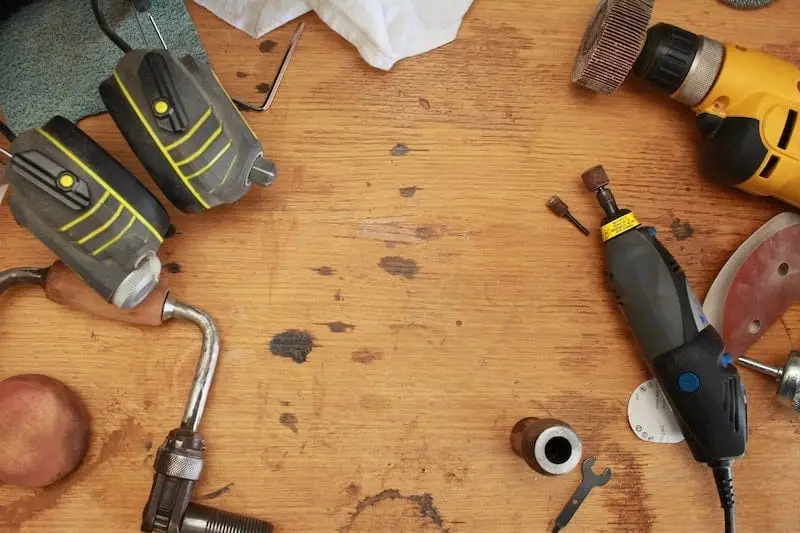Inspecting a property requires training, skill, and specific home inspection tools. These tools allow home inspectors to produce the most accurate home inspection report. Having the right equipment also makes the job easier. This article will go over the most important home inspection tools that you need to have.
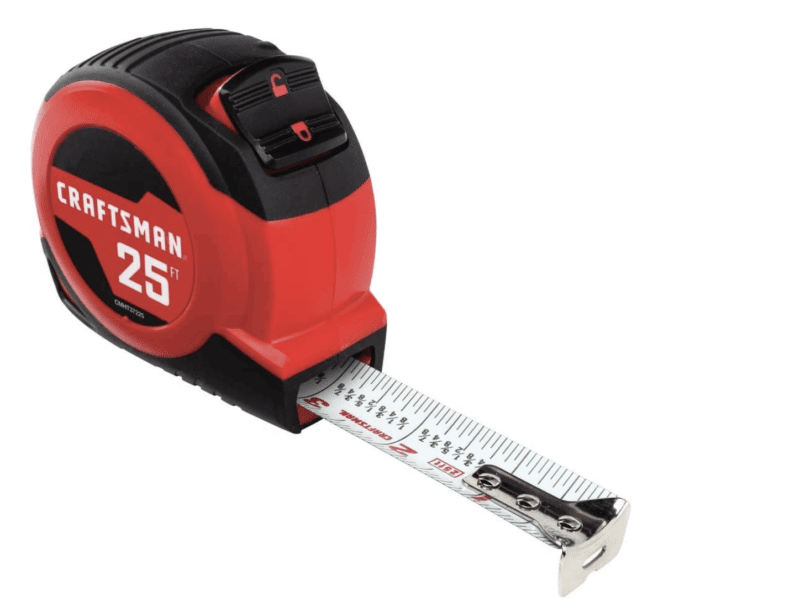
What are the basic home inspection tools?
The basic home inspection tools are a telescopic ladder, a flashlight, and an electrical tester that can test GFCI devices.
A home inspector can perform their job only with a flashlight and an electrical tester, according to the InterNACHI Standards of Practice. Most inspectors carry more home inspection tools to assess the condition of properties.
Let’s take a look at what home inspection tools you need when working in the field.
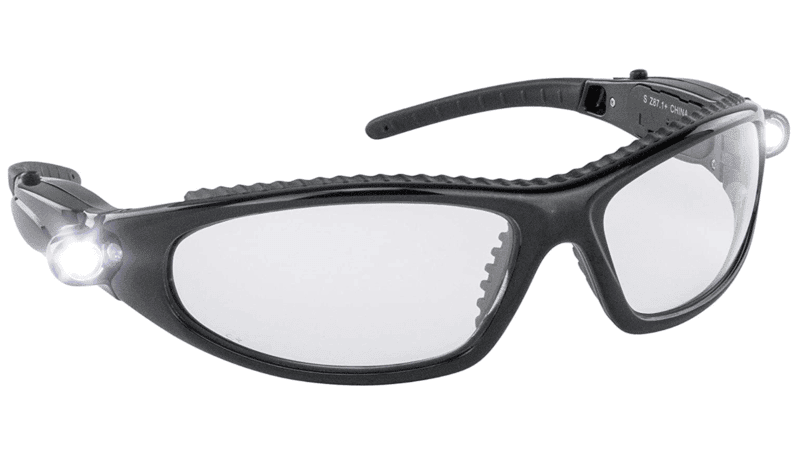
Protective home inspection tools
Protective tools ensure that you stay safe during a home inspection and avoid injuries.
- Safety goggles – will prevent dust and particles from getting into your eyes
- Gloves – to protect your hands when you have to inspect rough surfaces
- Respirator – ensure you don’t end up ingesting harmful chemicals that could pose a threat. A respirator is good for parts of a home that are prone to bacteria and fungal organisms, like the basement
- Dust mask – to protect you from inhaling dust particles
- Coveralls – you can use them to skip changing your clothes after doing a home inspection
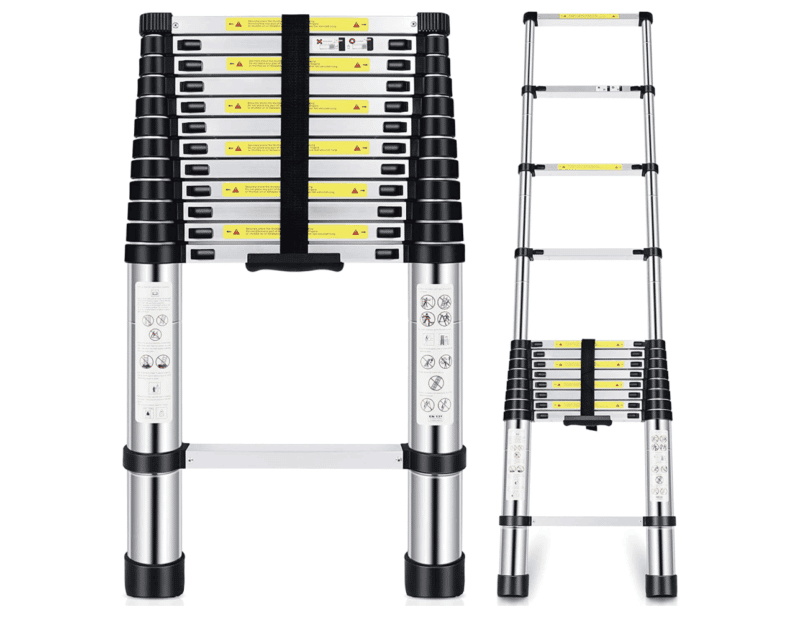
Basic home inspection tools
Essential home inspection tools help you perform the most basic functions. You can check basements for mold, access tight spaces, and take photos for your home inspection report
- Flashlight – a flashlight will help you to inspect areas like attics, crawlspaces, and basements
- Digital camera – a high-resolution digital camera to take photos and include in home inspection reports
- Telescoping ladder – a collapsible ladder that can be moved around a home can help you inspect various parts of a home more
- Tape measure – a durable tape measure that can measure at least 25 feet
- 4-foot level – to measure any walls, ceilings, any carpentry work as well as appliances
- An awl, which is pointed at one end for probing into rotted or deteriorated wood
- Screwdriver with many bits – that can help you open vents and power outlets
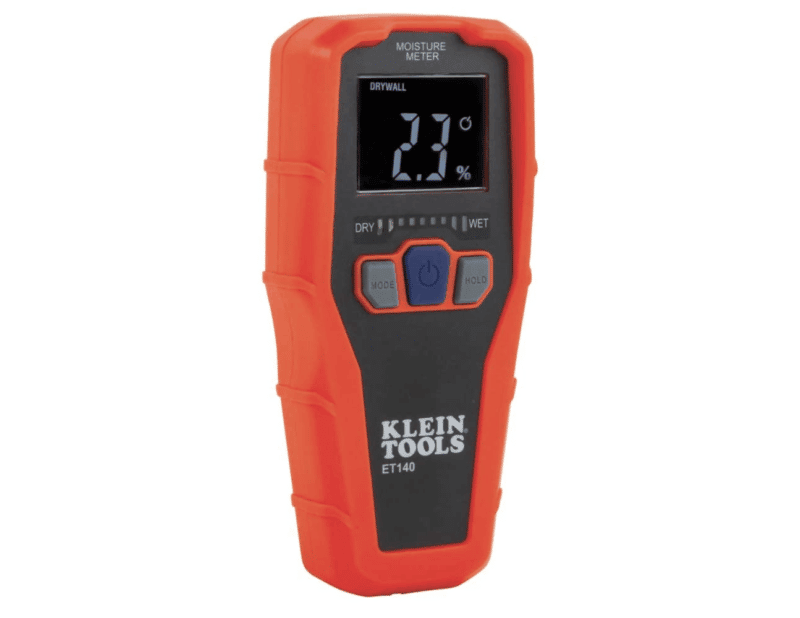
Specialized home inspection tools
Special home inspection tools allow assessing hard-to-reach areas like chimneys, attics, and sewers. Home inspectors who offer radon or asbestos testing, need specialized home inspection tools.
- Gas detectors – to identify any gas leaks
- Moisture meter – to check for the presence of water or moisture in various areas of a home
- Electrical circuit testers – An electrical tester that can test GFCI outlets and a voltage meter
- Water pressure gauge – helps to determine excess water pressure
- Infrared thermometer – to check the temperature of heating and cooling equipment. Also allows checking the electrical equipment, like circuits
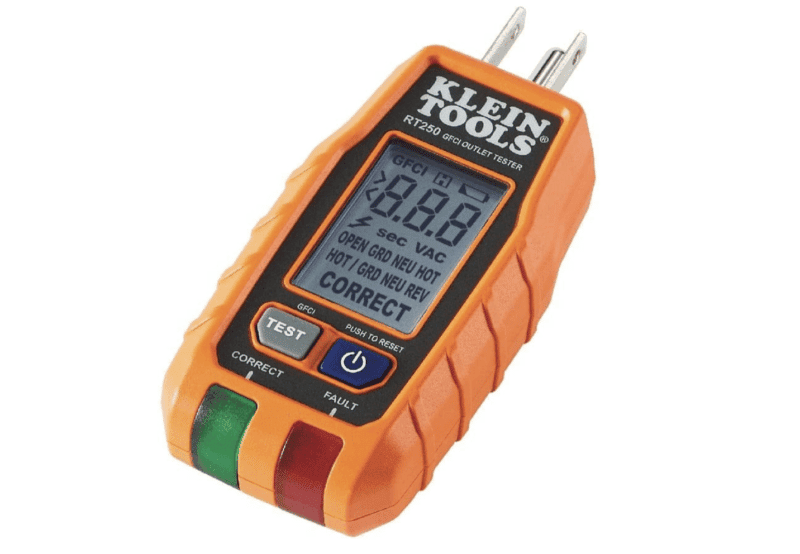
Other necessary home inspection tools
Home inspection tools on this list are not required, but they can be handy depending on the type of property.
- Microwave tester – to check if a microwave is working
- A voltage multimeter – (also known as an OHM multimeter) helps you check the electricity and the proper continuity of the wiring
- Outlet testers – also known as socket testers, these devices can help to detect proper wiring connection
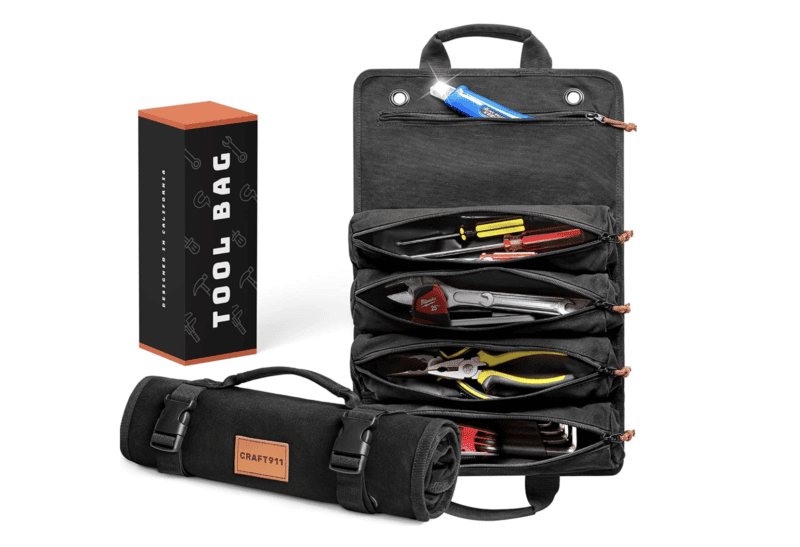
Clean-up tools
These tools help ensure you don’t leave a mess behind. The last thing you want to do is to leave someone’s property untidy after finishing your home inspection.
- Tool bag – helps you to keep your tools organized
- Towels – to clean up any water or leaks during a home inspection
- Floor covers – prevent you from damaging the floor when you need to climb a ladder.
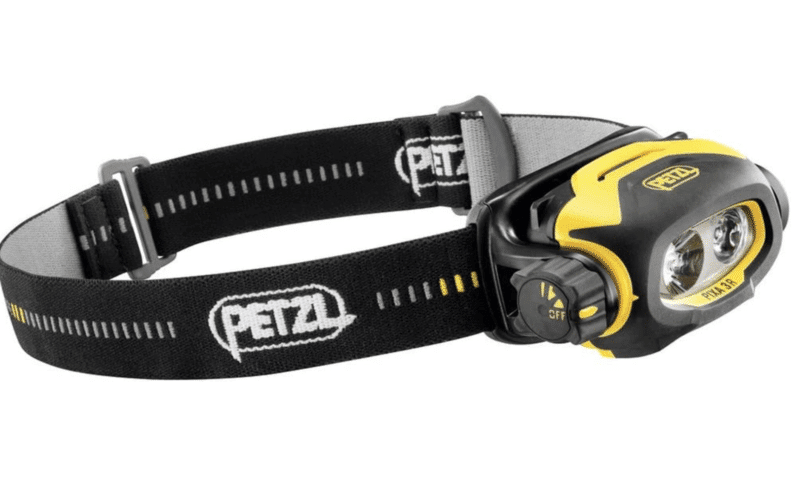
Other nice-to-have tools
- Headlamp – a headlamp is helpful for inspecting dark places like attics, crawl spaces, and basements
- Clamp electrical meter – this tool allows you to test hot circuits identified with an infrared camera
- Gas leak detection solution – this is the only way to detect a gas leak
- Roof-walking boots – wearing roof-walking boots will help you to stay safe while inspecting roofs
- Water hardness test strips – to test water softness
Frequently asked questions about your home inspection tool list
Which inspection tools should I buy?
While home inspection tools can be expensive, some of them are worth the price tag. Here are a few that are worth the extra money.
An all-in-one AFCI/GFCI tester, which helps reduce the number of tools you need while providing accurate results. A moisture meter is another helpful tool that may cost a few hundred dollars.
Another essential home inspection tool is a telescoping ladder that helps you to access different parts of the house. A telescopic ladder should set you back at less than around $200 on average.
Although it could be tempting to get a cheaper version of these tools, you shouldn’t do it. A higher price often means better quality when it comes to home inspection tools. The last thing you want to do is compromise your safety by failing to invest in the right home inspection tools.
Are there other home inspection tools that I need?
This article covers the most essential home inspection tools that should be in your toolbox. Other practical tools like telescoping magnets and mirrors can also be handy. A telescoping magnet helps pick up small metal items you drop, and telescoping mirrors make it easier for you to see in tight areas.
Another practical tool to consider is a smoke pen. This affordable home inspection tool helps you see where combustion appliances pull exhaust gases out of a flue and into a home’s living space.
The smoke pen can determine that air return vents are operating as they should. While it’s not required, some home inspectors carry a compass to figure out a home’s orientation. This tool can be useful for homes with energy-efficient features. You can also use it to confirm that a property’s elevation is as described.
What’s the most important home inspection tool?
Every home inspector should have an outlet and voltage tester. The electrical testers help to make sure that a home’s electrical system is safe and operating as it should be.
What should I consider when buying my home inspection supplies?
Buy home inspection tools and supplies made from quality, durable materials. Ask your fellow home inspectors which tools they recommend. Read customer reviews to ensure that what you buy is of good quality. And always test your tools before the job.
You can also buy OSHA-certified safety gear like ladders and personal protective equipment. Consider how easy the tools are to use, how lightweight they are, and how easy they are to replace.
If you buy expensive instruments, make sure they have a warranty. As for clothing like boots, buy the ones with good traction that are comfortable to wear. You can also opt for shoes like Cougar Paws for better traction when you’re inspecting a roof.
Is home inspection software necessary?
Quality home inspection software is essential to a successful home inspection business.
This software will help you to operate your home inspection business. It’s particularly helpful if you’re an independent inspector or own a company. The software helps you to schedule inspections, share reports, and bill customers.
The Inspection Software Network is a leader in the home inspection market. ISN offers many services and is trusted by thousands of home inspectors.
Sign up for a 30-day free trial to explore all its features for free.
A final word on choosing home inspection tools
Right home inspection tools are essential for running a successful home inspection business.
The right home inspection tools allow you to perform your job, deliver the best results and build your reputation. This article provides only a rough guide to some of the best home inspection tools. Prices and quality of home inspection tools vary, so do more research before buying them.
The Inspection Support Network offers reliable software. Visit our website to learn more about our many helpful features today.

